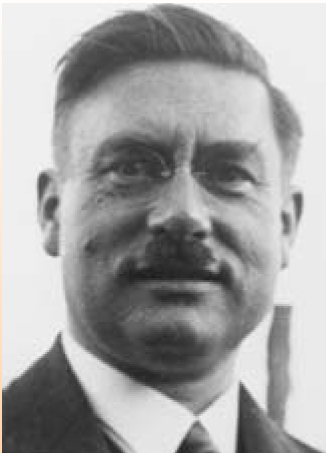Debye stripped of honors because of Nazi past
DOI: 10.1063/1.2216953
Two universities in the Netherlands have distanced themselves from Dutch-born Nobel laureate Peter Debye in light of new scrutiny about his actions in Nazi Germany.
Utrecht University has stripped Debye’s name from its Institute of Physics and Chemistry of Nanomaterials and Interfaces, and Maastricht University will no longer award an international prize for mid-career physicists and chemists unless the sponsoring foundation renames it. The moves came in February, shortly after publication of Einstein in the Netherlands (Ambo/Anthos, Amsterdam). The book’s author, Sybe Rispens, uncovered a letter showing that Einstein tried to prevent Debye from getting a job in the US. The book also notes that Debye considered returning from the US to wartime Germany in 1941, and that he signed letters “Heil Hitler.” For example, in 1939, he wrote to members of the German Physical Society, of which he was president, that “because of circumstances beyond our control, the membership of German Jews as defined by the Nuremberg Laws in the German Physical Society can no longer be maintained.” Anyone “affected by these measures,” he continued, should “communicate their resignation from the society to me. Heil Hitler!”
The Netherlands Institute for War Documentation confirmed the authenticity of the documents cited in Rispens’s book, and the universities have begun to investigate their meaning in the context of the times, says Jeanine Hermans, spokesperson for Maastricht University’s executive board.
But regardless of the historical context, she says, “Maastricht University doesn’t want to honor a person if there is a reasonable doubt that he stood up for academic freedom.” Adds Leo Jenneskens, director of the former Debye Institute at Utrecht, “I can understand the choice of our university board in deciding that the name is not suited as a role model.” Still, he says, the decision was hasty. “The letter [to members of the German Physical Society] was known to historians, and I would say it’s not definite proof that he was a collaborator. How many people were real heroes in those days?”
Mark Walker, a historian of Nazism who is based at Union College in Schenectady, New York, notes that by the mid-1930s, all official correspondence had to be signed “Heil Hitler.” “It doesn’t mean anything,” he says. “Debye is a typical scientist in a position of authority in Nazi Germany. He’s unusual only because he is Dutch.” (See Walker’s article on the history of the German Physical Society in Physics Today, December 2004, page 52
The American Chemical Society, which awards a prize in Debye’s name, is monitoring the situation, but at this point has no plans to strip Debye of that honor. Similarly, Cornell University, where Debye worked from 1939 until his death in 1966 and which has a lecture series and an endowed chair named for him, “is currently investigating the allegations,” Peter Lepage, the dean of arts and sciences, said in the university’s official statement on the matter. “We will decide what to do once we finish our investigation.”
Debye won the 1936 Nobel Prize in Chemistry for his studies of molecular structure. The unit for measuring the electric dipole moment is named for him. The importance of his scientific achievements is not in question.
As for Rispens, he says the actions of the two Dutch universities came as a “complete surprise” to him. His book looks at why Einstein turned his back on Debye. The answer, Rispens says, was that Debye was an “irresponsible opportunist.”

FRANCIS SIMON/AIP ARCHIVE

More about the authors
Toni Feder, American Center for Physics, One Physics Ellipse, College Park, Maryland 20740-3842, US . tfeder@aip.org





